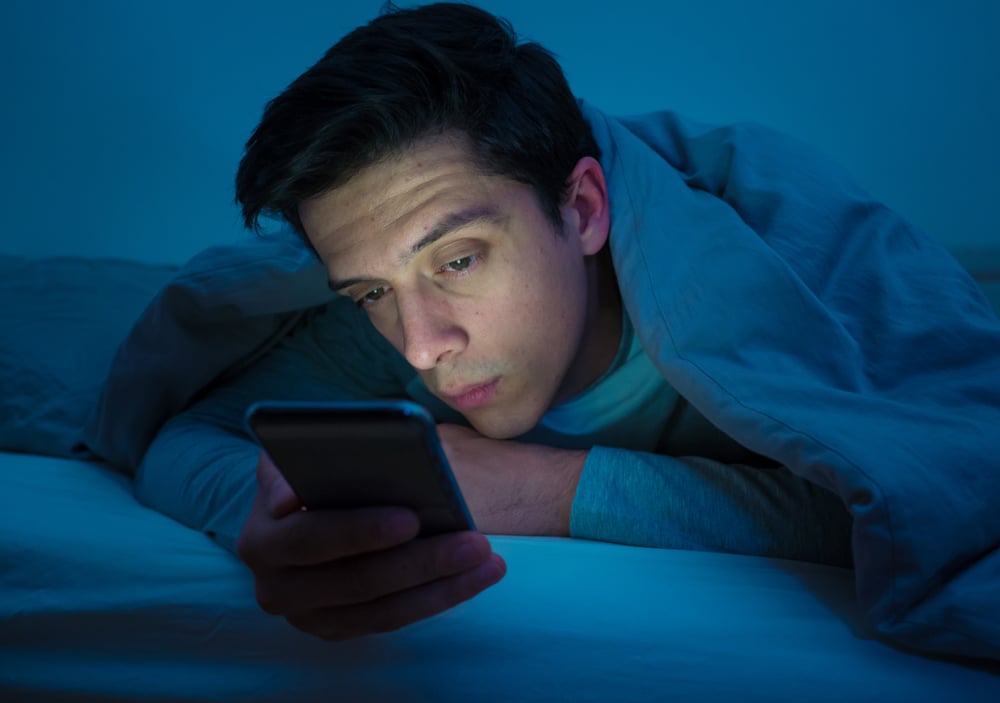Medically Reviewed by: Edward C. Wade, M.D., F.A.C.S.
Do You Get Dry Eyes After Refractive Surgery?
Patients who are interested in vision correction surgery may have seen warnings about dry eyes after refractive surgery while researching procedures. While surgeries like LASIK and PRK are generally safe and yield high patient satisfaction rates, they do have potential risks and side effects.
As a trusted partner for LASIK and alternative laser eye surgeries in Houston, the ophthalmologists at Eye Center of Texas are here to walk you through the risks of dry eyes after LASIK and PRK as well as offer an alternative option for those who want the freedom that vision correction surgery provides without the risk of dry eyes.
What causes dry eyes?
Dry eyes are caused when tears are unable to properly provide moisture. There can be many reasons someone would suffer from dry eyes including allergies, hormonal changes, aging, and autoimmune disease. Dry eyes are a common discomfort regardless of whether or not you’ve had eye surgery but, can eye surgery make this discomfort worse?
Does laser eye surgery make your eyes dry?
Not always, but it surely can! In fact, dry eye syndrome is one of the most commonly reported side effects of LASIK eye surgery. Why does LASIK cause dry eyes? Because some of the nerves in your cornea are cut during the procedure, the eye’s ability to sense when they need more moisture is reduced. They are therefore unable to tell the brain that you need to produce more tears, resulting in dry eyes.
How long do dry eyes last after surgery?
The length of time it takes for your eyes to return to a normal, moistened state will depend on each individual patient. However, studies have shown that most patients will recover from signs of dry eyes six months to one-year post-surgery. To improve symptoms of dry eyes, you can try over-the-counter lubricating eye drops or artificial tears and stay hydrated. Learn more about how to get rid of dry eyes here.
Dry eyes after LASIK
As mentioned above, dry eyes are one of the most common complaints during the LASIK recovery period. According to a study done by the FDA, 30% of LASIK patients who did not suffer from dry eyes prior to the procedure experienced temporary dry eyes in the first 6 to 12 months or until their corneal nerves heal.
That said, patients who already suffer from dry eye syndrome, women (due to hormonal changes) and patients with high prescriptions are most at risk for dry eyes during the LASIK recovery period.
Dry eyes after PRK
Similarly to LASIK, the photorefractive keratectomy (PRK) procedure involves surgically manipulating the cornea. During PRK your eye surgeon uses a laser to remove the top layer of your cornea in order to reshape refractive errors that cause blurred vision. During this process, corneal nerves may be cut causing an inability for the tear glands to get the message that your eyes are dry. Like LASIK, patients may experience dry eyes until their corneal nerves have fully healed.
Is there a better option for dry eyes than LASIK?
Although there is a risk of developing dry eyes after refractive surgery, most patients only experience it temporarily and are able to treat symptoms at home with lubricating drops or artificial tears. But if you already suffer from dry eyes and are concerned about aggravating your condition, there is an alternative to LASIK and PRK that doesn’t come with the risk.
That alternative is the breakthrough vision corrective procedure called EVO Visian ICL.
Rather than reshaping the cornea, EVO Visian ICL implants an artificial lens into your eye through a small hole to correct common refractive errors like nearsightedness (myopia) and nearsightedness with astigmatism. This lens is made of biocompatible Collamer that works with your eyes to provide almost immediate vision improvement the same day as your procedure.
Because the EVO Visian ICL procedure does not involve cutting a corneal flap or using a laser to remove the top layer of your cornea, no nerves are damaged and the procedure will not cause dry eyes — making it a great alternative option for anyone looking for visual freedom without the risk of dry, itchy eyes.
Eye Center of Texas is here to meet your vision needs!
Whether you’re looking for the best LASIK in Houston or are concerned about developing dry eyes after refractive surgery and want to learn more about the groundbreaking EVO Visian ICL procedure, the top rated eye surgeons at Eye Center of Texas can help you receive your best vision with the ideal refractive surgery for you.
Take the first step on your path to clear vision. Give us a call at (713) 797-1010 or schedule an appointment online today!
More Helpful Articles by Eye Center of Texas:
- What Are The Three Types of Cataracts?
- How to Relieve Contact Lens Intolerance
- EVO Visian ICL: The Latest in Refractive Surgery
- The Difference Between EVO Visian ICL and Toric ICL
- How to Find A Glaucoma Specialist in Houston
Related Articles
Financing Options Available
Apply today to find a financing option that meets your needs.
Our Locations
Houston/Bellaire
6565 W. Loop S., Suite 650Bellaire, TX 77401
Medical Office:
713-797-1010
Medical Fax:
713-357-7276
LASIK/Near Vision:
Office: 713-395-1515
Fax: 713-357-7278
Pasadena
4415 Crenshaw RoadPasadena, TX 77504
Medical Office:
281-977-8800
Medical Fax:
281-977-8877
Sugar Land
15200 S.W. Freeway, Suite 130Sugar Land, TX 77478
Medical Office:
281-277-1010
Medical Fax:
281-277-4504
Clear Lake
455 E. Medical Center Blvd., Suite 110Webster, TX 77598
Medical Office:
281-332-1397
Medical Fax:
281-282-9152
Katy
Greenhouse Medical Plaza2051 Greenhouse Road, Suite 110
Houston, TX 77084
Medical Office:
346-547-7070
Medical Fax:
281-214-2971
The Woodlands/Conroe
100 Medical Center Blvd., Suite 118Conroe, TX 77304
Medical Office:
936-647-1610
Medical Fax:
936-647-1620


